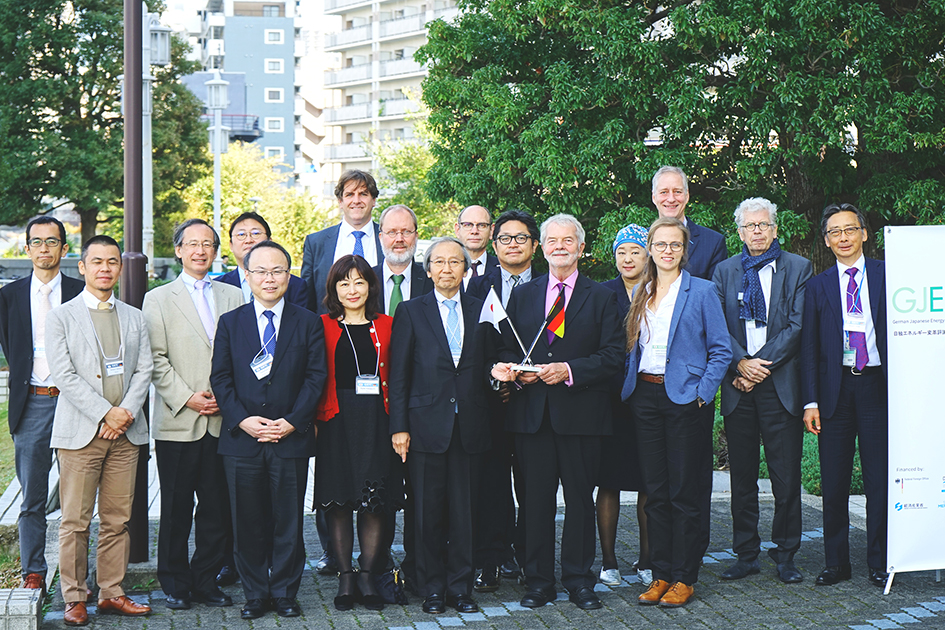GJETC 2.0
5th Council Meeting on 14th/15th November in Tokyo will kick off next phase

5th Council Meeting on 14th/15th November in Tokyo will kick off next phase


After two years of successful work which culminated in an extensive 800 pages study programme and a Final Report published in April 2018, the German-Japanese Energy Transition Council (GJETC) will continue its work in a second phase from this fall. Thanks to the renewed support of the German Environment Foundation (DBU), the German Federal Foreign Office and the Japanese Ministry of Economy and Trade (METI), the Council will independently develop ideas and alternative options for a long-term and sustainable energy supply strategy in both countries in the next two years.
"The 2nd GJETC working phase comes just in the right timing as the long-term scenarios for the future alignment of energy policy are intensively discussed in Germany as well as in Japan. In the forerun to COP24 in Poland and G20 summit in Japan, German and Japanese German governmental bodies and organisations intensified their consultations in several fields related to energy system of the future. For these discussions, the GJETC is a unique project of independent bilateral scientific cooperation, which aims to continue to give science-based impulses for the energy policy in both countries," stated Prof. Peter Hennicke, German Co-Chair of the GJETC and Senior Advisor at the Wuppertal Institute.
GJETC 2.0 will adopt a new working style: In addition to the biannual meetings, working groups including Council Members as well as external experts from industry and civil society will be installed to facilitate a more focused research on specific topics ("bottlenecks") of energy transition identified in phase 1.
A special focus will be set on the review of German and Japanese long-term scenarios (for 2050) and their evaluation mechanisms as well as on building energy efficiency and heating/cooling. Furthermore, two fundamental studies on "H2 Society" and the Role of "Digitisation for the Energy Transition" will be carried out and accompanied by the Council.
Further information can be found in the links below.
